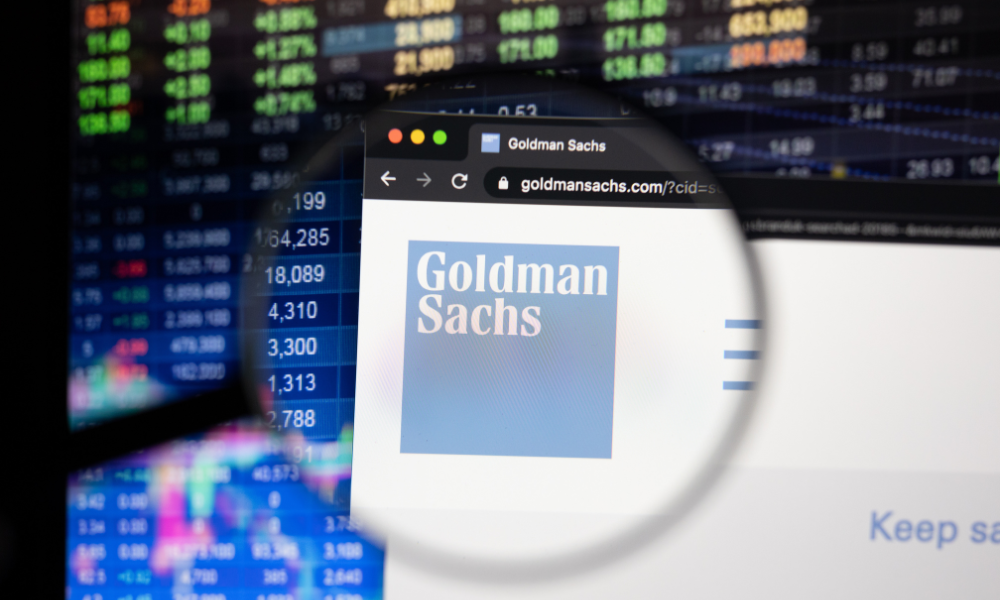

by Finbarr Flynn
Goldman Sachs Group Inc. strategists have sharply raised their forecasts for US credit spreads, citing tariff risks and signs that the White House is willing to tolerate short-term economic weakness.
The strategists now expect the nation’s investment-grade bond spreads to hit about 125 basis points in the third quarter, up from their previous estimate of 84 basis points, and high-yield spreads to reach 440 basis points, an increase from their previous 295 basis point forecast.
“Current spread levels are still too tight,” the bank’s credit strategists led by Lotfi Karoui wrote in a note dated March 11. On Tuesday, US investment-grade credit spreads widened to 94 basis points, their highest since September, according to a Bloomberg index.
Concerns over President Donald Trump’s trade policies have soured risk sentiment, leaving US stocks near a correction and prompting Wall Street heavyweights like Goldman Sachs and Citigroup Inc. to downgrade their bullish calls. The ripple effect is being felt far and wide, with the cost of protecting corporate credit against default at a seven-month high, and spreads on global speculative-grade corporate bonds seeing their sharpest two-day move since August.
For the first time in two years, investors are demanding a bigger premium to hold junk-rated US debt than European equivalent, reflecting fears of a slowdown in the world’s largest economy.
While Trump tried to down play recession fears this week, his comments during a Fox News interview Sunday about the US economy facing a “period of transition” have left investors unsettled.
Goldman Sachs equity strategists Tuesday cut their S&P 500 year-end target to 6,200 from 6,500, citing reduced growth forecasts, higher assumed tariff rates and increased uncertainty. Banks including HSBC Holdings Plc, JPMorgan Chase & Co. and RBC Capital Markets have also downgraded their bullish views for 2025, citing similar worries around the US economy.
This uncertainty is in contrast to the performance of international equities, with China and Europe outperforming.
Despite the risk appetite remaining fragile, Goldman Sachs doesn’t expect spreads to widen to recession levels. “Rather we view this as a realignment of risk premia to higher macro volatility,” the analysts wrote.
The bank’s strategists are advising investors to trim their exposure to CCC rated junk bonds, among the riskiest in the credit market. Meanwhile, in the broader fixed income space, they recommend favoring agency mortgage-backed securities over investment-grade corporate bonds, citing their lower sensitivity to growth risks.
Copyright Bloomberg News

It's a showdown for the ages as wealth managers assess its impact on client portfolios.

CEO Ritik Malhotra is leveraging Savvy Wealth's Fidelity partnership in offers to Commonwealth advisors, alongside “Acquisition Relief Boxes” filled with cookies, brownies, and aspirin.

Fraud losses among Americans 60 and older surged 43 percent in 2024, led by investment schemes involving crypto and social manipulation.

The alternatives giant's new unit, led by a 17-year veteran, will tap into four areas worth an estimated $60 trillion.

"It's like a soap opera," says one senior industry executive.
RIAs face rising regulatory pressure in 2025. Forward-looking firms are responding with embedded technology, not more paperwork.
As inheritances are set to reshape client portfolios and next-gen heirs demand digital-first experiences, firms are retooling their wealth tech stacks and succession models in real time.
